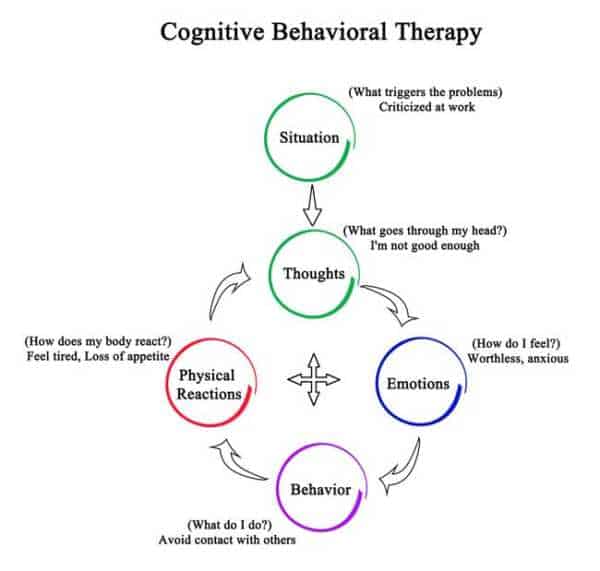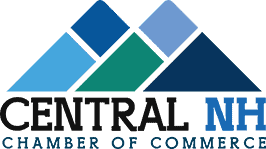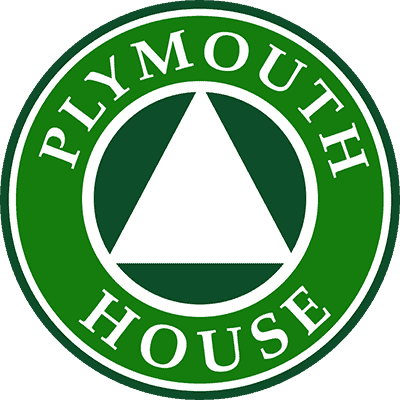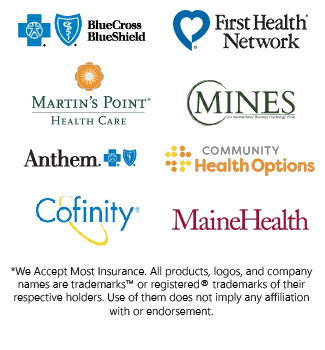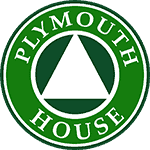The Plymouth House
Therapeutic Services
Therapeutic Services
In 2021, The Plymouth House partnered with Guardian Recovery Network — a family of well-respected treatment centers across the United States — to increase the center’s capacity to help people. By joining the Guardian Recovery Network, we have been able to expand our clinical care and increase our staff of professional, licensed psychiatrists. The recent expansion of our therapeutic offerings has allowed us to help individuals on a deeper level with underlying mental health conditions, past traumas and interpersonal conflicts.
Drug and Alcohol addiction slowly degrades a person at every level — physically, mentally, emotionally and spiritually. In order to address an addiction properly, a recovery program must address all aspects. This equates to a targeted combination of clinical, medical, emotional and spiritual therapies. The Plymouth House’s restorative program combines the power of the 12-Steps with professional therapy, clinical services, recreational activities and 12-Step mentorship to help individuals find freedom from addiction once and for all.
Professional Clinical Therapy
In regards to professional clinical therapy, guests at The Plymouth House receive individual, group and family therapy. Every guest has a dedicated primary therapist whom they work with throughout the entirety of their stay. Every guest takes part in multiple group therapy sessions per day. And every guest has the opportunity to involve their family in therapy if they so choose.
Each Client’s Therapy Team is Composed of:
A Primary Therapist – Every Plymouth House guest works with one primary therapist. Our therapists are world-class, licensed professionals who are well versed in treating addiction, trauma and mental health issues. Our primary therapists utilize a wide range of methods including traditional talk therapy, cognitive behavioral therapy (CBT), dialectical behavioral therapy (DBT), eye movement desensitization and reprocessing (EMDR) and motivational interviewing. Each guest meets with their primary therapist at least once a week, but oftentimes more.
Group Therapists – Every Plymouth House guest participates in demographic-specific group therapy sessions on a daily basis. Usually the demographics are a men’s group, and a women’s group. Occasionally, however, there may be a breakout group, based on need, for a different demographic, such as young people. These workshops are guided by one of our staff therapists. Sometimes these sessions are educational in nature — teaching a subject pertinent to addiction recovery. Other times they are experiential, such as role play or partner work.
A Case Manager – A case manager is responsible for helping each guest develop a personalized treatment plan for during and after the Plymouth House Program. The Case Manager regularly checks in with each guest to check up on the progress being made, and serves as the main point of contact between clinicians and family members. A case manager can also help with external issues such as paperwork for court cases, employee assistance programs and probation officers. A Case Manager is an advocate for each and every one of their clients, ensuring that every individual is building a solid path forward.
A 12-Step Contact – A 12-Step Contact is essentially a professional sponsor. For those unfamiliar with the term “sponsor” — a sponsor is a mentor who is in recovery themselves, has worked the 12-Steps of Alcoholics Anonymous and is dedicated to helping others go through the 12-Steps. Many of the 12-Step Contacts at The Plymouth House are also alumni of The Plymouth House Program, so they have direct knowledge of what individuals are experiencing throughout the course of their treatment. Our 12-Step contacts guide individuals through the first seven of the 12 Steps.
We Are Here For You
Let Us Help You Heal
Our Drug & Alcohol recovery services are second to none.
Learn how we can help by speaking with one of our Treatment Advisors today.
The core therapeutic methods currently being used at The Plymouth House include:
Cognitive-Behavioral Therapy (CBT) – CBT focuses on the stories we tell ourselves about ourselves, our world, others and events. The stories we make up about such topics have a huge impact on how we feel. And how we feel generally motivates our actions and attitudes. CBT is a method of re-writing our narratives so that we can feel happier and make better decisions in our lives. CBT teaches us to slow down and question our thoughts. This slowing down process helps us avoid impulsivity and emotional reactivity. CBT has particularly been shown to help with anger management.
Dialectical-Behavior Therapy (DBT) – DBT is a type of CBT that focuses on self-destructive behaviors and thinking patterns. DBT is broken down into four main strategies:
- Increasing an individual’s distress tolerance, teaching them to react less impulsively and without resorting to self-injury or substance abuse to dampen distress
- Increasing one’s ability to regulate their emotions by recognizing, labeling and adjusting those emotions
- Practicing mindfulness to increase one’s awareness of themselves, others and the present moment
- Teaching individuals tools for bettering their interpersonal relationships and navigating conflict.
Eye Movement Desensitization & Reprocessing (EMDR) – EMDR is a method for treating past trauma. With every memory one side of our brain processes and records the facts of a situation, such as where we were, who we were with and what happened; the other half of the brain processes the emotional memory — how we felt about the situation. During a traumatic event, the brain has a built-in defense mechanism — it splits the connection between the two hemispheres of the brain. This is why a serial murderer can recount the facts of his crimes without showing any emotion. Likewise, this is why you can have a soldier who smells a fragrance in the air and his body panics, hitting the deck in fear without really knowing why. His brain remembers the emotional response, without remembering the facts of what originally triggered that emotion. EMDR utilizes external stimuli — such as flashing lights or vibrating handholds — to stimulate the two sides of the brain. An individual going through EMDR therapy alternates their attention from right to left, right to left, as they explore their traumatic memory. The external stimulus has a way of reconnecting the two hemispheres of the brain. By making our memories whole in a safe environment, we can process them and heal.
Our Drug & Alcohol Treatment Services Include
Our Dual Diagnosis Program
For guests who have an underlying mental health disorder, The Plymouth House does consider itself a Dual Diagnosis Program. While we are not a psychiatric facility, we are highly experienced in working with patients who are dually diagnosed — meaning they are suffering from both an addiction and some sort of mental health diagnosis (such as depression, anxiety, borderline personality disorder or bi-polar disorder). Mental health disorders are very common for addicts and alcoholics because either the individual has been self-medicating an underlying mental health disorder, or they have developed one as a result of their addiction’s effect on their brain chemistry. Dual Diagnosis individuals also commonly suffer from past trauma. The Plymouth House has a prescribing psychiatrist on staff. We utilize a wide range of therapeutic methods including cognitive behavioral therapy (CBT), dialectical behavioral therapy (DBT) and eye movement desensitization and reprocessing (EMDR). We teach mindfulness meditation and yoga. And we utilize recreational activities, fitness and nutrition. All of these elements help dually diagnosed individuals heal both their addictions and their mental health disorders.
Ready To Begin Your Drug & Alcohol Treatment?
We Offer A Safe & Effective Program
Don’t let Drug & Alcohol addiction control your life.
Call us today and let’s get you started on the path to a better you.
Other Therapeutic Methods We Utilize
In addition to our clinical methods, The Plymouth House also uses a wide range of other therapeutic activities to help our guests. These include:
Recreational Opportunities – The Plymouth House’s 7-acre campus sits on 60 acres of property nestled in the foothills of the White Mountains. It is an idyllic location to go for hikes along the river, stroll through the trees and be outside. The Plymouth House incorporates optional hiking into its weekly schedule. We also have a basketball court and horseshoe pits. Individuals who are just getting sober need to learn how to have fun in recovery. Participating in recreational activities in the great outdoors helps our guests begin to feel alive againFitness & Nutrition – Not only is exercise and nutrition important for the body, it is also important for the brain. Addiction reduces the brain’s ability to produce naturally occurring happy chemicals such as serotonin and dopamine. When first getting sober, addicts and alcoholics often feel a sense of numbness and apathy because their brains have not balanced out chemically. Fitness and nutrition are critical to the process.
Yoga & Meditation – Yoga and meditation help individuals develop self-awareness and a sense of their own spirit. Addicts and alcoholics generally are unpracticed with looking inward and sitting with themselves. Yoga and meditation help develop this practice. The ability to slow down, get calm and re-center is a critical skill for reducing impulsivity, desensitizing emotional reactivity and dealing with cravings.
12-Step Meeting Participation – Guests at the Plymouth House are exposed to 12-Step meetings both on and off grounds throughout their entire stay. Participation in a 12-Step program is critical to maintaining sobriety after leaving treatment. These meetings give individuals the opportunity to get connected with the sober community and get comfortable with going to meetings.
Life Skills Workshops – While battling an addiction, individuals often pick up terrible habits, neglect life’s responsibilities and bury themselves in financial debt. Re-learning the basics of normal living is necessary for stabilizing one’s life after leaving treatment. Life Skills workshops help individuals plan for life in the world.
Begin Healing Now!
Have A Call With One Of Our Treatment Advisors
Don’t Suffer Any Longer
Comprehensive Healing Found Here
At The Plymouth House we pride ourselves on providing the most comprehensive addiction treatment program we possibly can. We do our best to address every aspect of addiction — from the physical, to the mental, emotional and spiritual. We utilize a wide range of techniques to encourage healing in all areas of an individual’s life. If you or someone you know needs to find freedom from addiction and begin to heal old wounds, then deciding to come to stay at The Plymouth House may be a life-changing choice. If you are unsure, or just want to talk it over, contact us — we are here for you 24 hours a day. Our team of treatment advisors is made up of compassionate, empathetic and knowledgeable individuals who want to help you craft the best plan possible.



